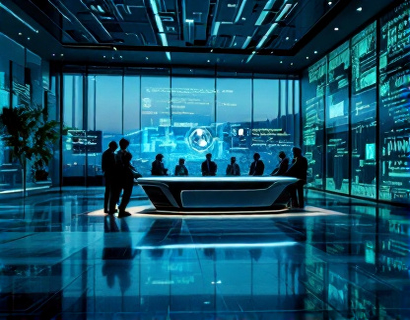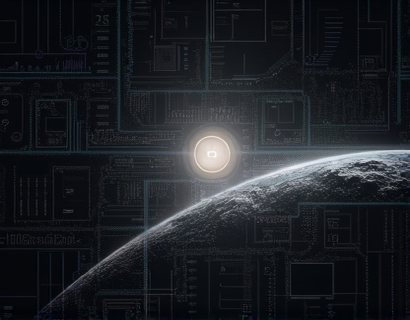Elevate Your Restaurant: Expert Management Software for Streamlined Operations and Enhanced Customer Experiences
In the competitive world of dining, restaurant owners and managers face numerous challenges that can impact the success of their businesses. From managing staff schedules and inventory to ensuring a seamless dining experience for customers, the tasks are diverse and demanding. To thrive, restaurant professionals need a robust solution that streamlines operations and enhances customer interactions. Expert management software is designed to address these needs, offering a comprehensive toolset that optimizes internal workflows and elevates external customer experiences. This article delves into the key features and benefits of such software, providing insights into how it can transform your restaurant's performance.
Streamlining Internal Workflows
One of the primary advantages of implementing expert management software in a restaurant setting is the significant improvement in internal workflows. These systems are designed to automate and simplify various tasks, reducing the burden on staff and management. For instance, scheduling and time management are critical aspects of restaurant operations. The software can generate efficient schedules based on historical data, employee availability, and business needs, ensuring that staffing levels are optimal for each shift. This not only reduces labor costs but also minimizes overtime and improves employee satisfaction.
Inventory management is another area where expert software shines. By integrating with point-of-sale systems, the software can track inventory levels in real-time, automatically generating orders when stock falls below predefined thresholds. This prevents stockouts and overstocking, ensuring that the kitchen always has the necessary ingredients to meet customer demand. Additionally, the software can provide detailed reports on inventory turnover and usage, helping managers make informed decisions about purchasing and waste reduction.
Enhancing Customer Experiences
Customer satisfaction is paramount in the restaurant industry, and expert management software plays a crucial role in enhancing the dining experience. One of the most impactful features is the ability to manage customer feedback and reviews effectively. The software can collect feedback through various channels, such as online review platforms, comment cards, and direct feedback forms. This data can be analyzed to identify trends and areas for improvement, allowing management to take proactive steps to address customer concerns and enhance service quality.
Reservation and table management is another critical aspect of customer experience. Expert software can handle reservations seamlessly, allowing customers to book tables online or via a mobile app. The system can manage waitlists, send automated confirmation and reminder messages, and even offer table upgrades or special offers based on customer preferences. This not only improves the booking process but also increases customer loyalty and satisfaction.
Improving Communication and Collaboration
Effective communication and collaboration among staff are essential for a smooth-running restaurant. Expert management software facilitates this by providing a centralized platform where information can be shared and accessed easily. For example, the software can send real-time notifications to staff about schedule changes, special events, or urgent messages. This ensures that everyone is on the same page and can respond quickly to changing circumstances.
Moreover, the software can support cross-departmental collaboration. Kitchen staff, front-of-house employees, and management can communicate more effectively through integrated messaging tools and shared dashboards. This transparency helps in coordinating tasks, such as preparing special dishes for VIP guests or managing peak dining times, leading to a more cohesive and efficient operation.
Data-Driven Decision Making
One of the most powerful aspects of expert management software is its ability to provide actionable insights through data analytics. By collecting and analyzing data from various sources, the software can generate comprehensive reports on key performance indicators (KPIs) such as sales trends, customer demographics, and operational efficiency. These insights enable restaurant managers to make informed decisions, optimize menu offerings, adjust pricing strategies, and enhance marketing efforts.
For instance, analyzing sales data can reveal which dishes are most popular and profitable, allowing managers to focus on these items and potentially introduce new menu items based on customer preferences. Similarly, understanding customer demographics can help tailor marketing campaigns and promotions to specific audience segments, increasing the effectiveness of marketing efforts.
Enhancing Operational Efficiency
Operational efficiency is crucial for maintaining profitability in the restaurant industry. Expert management software contributes to this by automating routine tasks and providing tools for better resource management. For example, the software can streamline order processing by integrating with kitchen display systems (KDS). This ensures that orders are prepared and delivered promptly, reducing wait times and improving customer satisfaction.
Cleaning and maintenance schedules can also be managed more effectively with the software. By setting reminders and tracking completed tasks, managers can ensure that the restaurant remains clean and well-maintained, which is essential for customer comfort and health standards. Additionally, the software can monitor energy and utility usage, helping managers identify areas where costs can be reduced through more efficient practices.
Supporting Staff Development and Training
Investing in staff development and training is vital for long-term success. Expert management software can support this by providing tools for tracking employee performance and facilitating training programs. The software can record training sessions, track completion of courses, and assess employee proficiency in various areas. This data can be used to identify training needs and create personalized development plans for each staff member.
Moreover, the software can recognize and reward employee achievements, boosting morale and motivation. By acknowledging hard work and success, managers can foster a positive work environment that encourages teamwork and excellence.
Conclusion
In conclusion, expert management software is a transformative tool for restaurants looking to elevate their operations and customer experiences. By streamlining internal workflows, enhancing customer interactions, improving communication, and providing data-driven insights, this software helps restaurant professionals overcome common challenges and achieve their business goals. Whether it's optimizing schedules, managing inventory, or analyzing customer feedback, the benefits of such software are numerous and far-reaching. Embracing this technology can be the key to unlocking new levels of efficiency, satisfaction, and success in the dynamic world of dining.








































